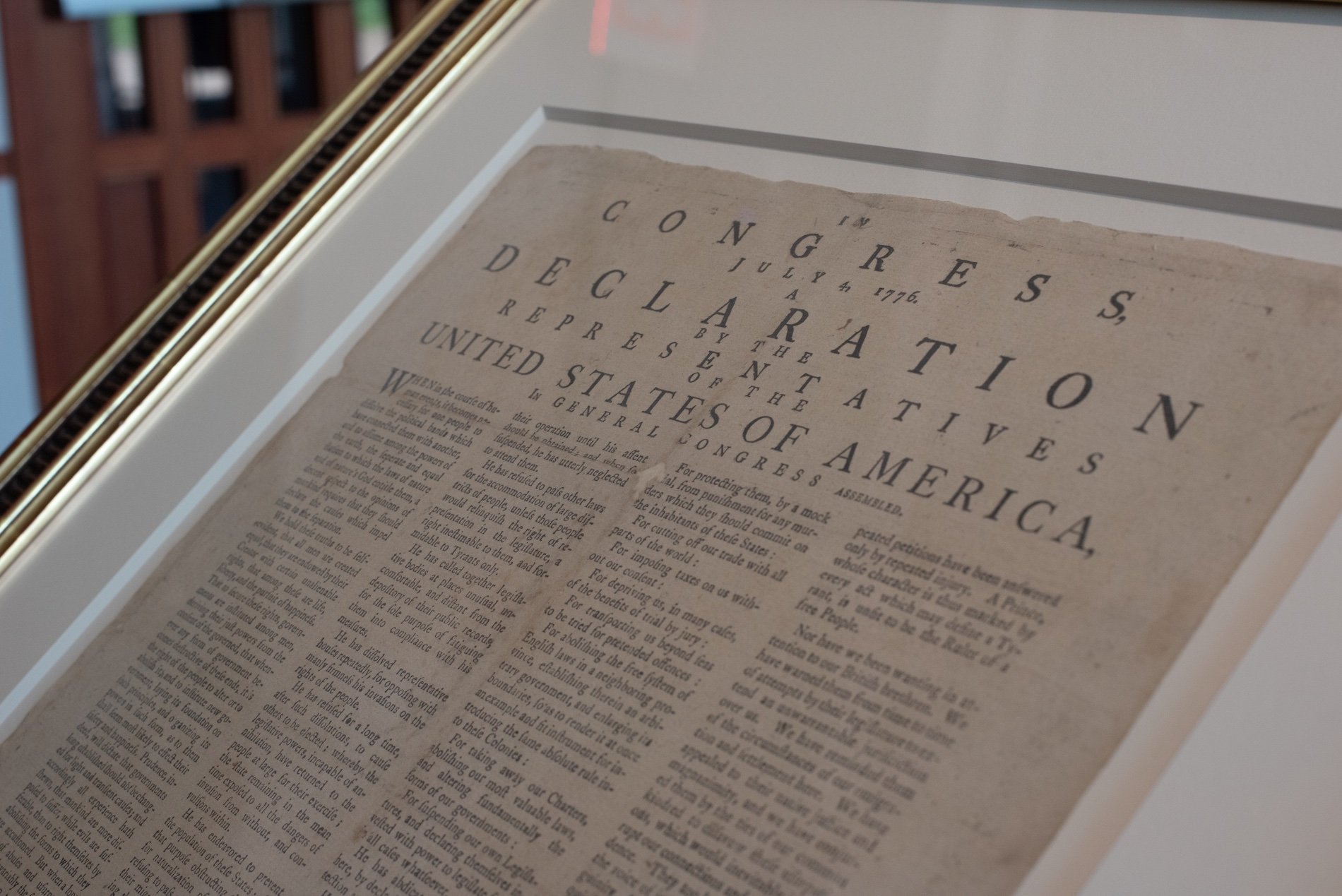These Truths
“We hold these truths to be self-evident, that all men are created equal, that they are endowed by their Creator with certain unalienable Rights, that among these are Life, Liberty and the pursuit of Happiness.”
– United States Declaration of Independence
The American experiment of self-governance is one of the most remarkable endeavors of human history. Critically, the Founders understood that our rights were not self-determined, but God-given. The “light” of truth that ALL men were created equal was not universally assumed, but they held it high as a beacon to the world to see. Our nation would struggle for centuries to realize this truth more fully, and the effort to include the unborn continues to this day.
Although the Founders held theologically diverse perspectives, they generally shared the view that man’s nature is bent, not towards justice, but towards sin. Skepticism of the innate goodness of man, as well as distrust of the inherent wisdom of the majority, led them to create a system of checks and balances to ensure that no one person or group could wield undo power over the minority. They seasoned the Constitution with the salt of truth that, to quote Soviet dissident Aleksander Solzhenitzyn,
the line separating good and evil passes not through states, nor between classes, nor between political parties either -- but right through every human heart -- and through all human hearts.
As Os Guinness explored in his book Free People’s Suicide (based in part on a speech he gave at a Senate retreat I planned), the Founders understood the essential role of religion in the maintenance of democracy. They believed the American experiment, and limited government, is dependent on a virtuous people. Religion is indispensable in the formation of virtue as a regulator of our bent toward sin. The government, therefore, must protect and promote the freedom and role of religion for the public good. This iron triangle of freedom-virtue-religion was explicitly articulated by John Adams who famously stated, "Our constitution was made only for a moral and religious people. It is wholly inadequate to the government of any other."
George Washington was so concerned that people in a free republic would forget the bedrock of virtue and morality necessary to the preservation of the Experiment, he declared in his Farewell Address: "Of all the dispositions and habits which lead to political prosperity, religion and morality are indispensable supports.”
Not every founder was equally committed to the necessity and benefit of religion to the sustenance of democracy. In his last letter written June 24, 1826, Thomas Jefferson proclaimed: “May it be to the world, what I believe it will be, (to some parts sooner, to others later, but finally to all,) the signal of arousing men to burst the chains under which monkish ignorance and superstition had persuaded them to bind themselves, and to assume the blessings and security of self-government.”
However, Jefferson stood with other founders like James Madison to promote the freedom of religion, and the Virginia Statute for Religious Freedom stood as a model for the rest of the nation. Although they disagreed on the role of religion in public affairs, together Jefferson and Madison laid the foundation that allowed religion to prosper in America unlike virtually every other Western society.
To some extent, this conversation continues today. At the Clapham Group, named after the community of evangelical social reformers who fought to end the slave trade, we stand with the Founders who saw religion not just as a personal freedom, but also as a necessary public good.
June 17 marked the 250th anniversary of the Battle of Bunker Hill, considered by many to be the official start of the War of Independence. Over the next several years, as we revisit the foundations which made America exceptional, we are eager to engage a discussion as our Founders did regarding the role of religion in our shared, future flourishing.
The life of the nation is secure only while the nation is honest, truthful and virtuous. – Frederick Douglass



